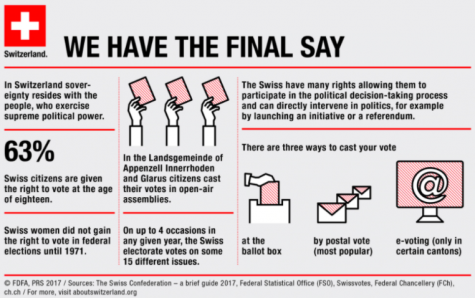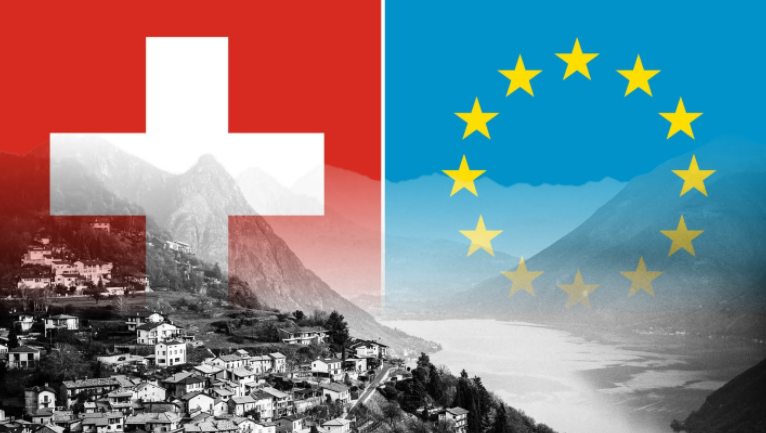Switzerland Rejects Referendum
Voters reject vote to end free movement with the EU.
October 1, 2020
This Monday, millions of people in the small alpine country of Switzerland voted down a proposal to end a long-time free movement treaty with the European Union.
While Switzerland is not a member of the EU, it is completely surrounded by its member states and maintains a lengthy series of treaties with the block. One of these treaties is an accord allowing the free movement of people between the European Union and Switzerland.
This accord has received much backlash by various right-wing segments of Swiss society, most notably the populist Swiss People’s Party (SVP), which has focused for the past half-century on the preservation of Switzerland’s national sovereignty and its traditional conservative society.
The Party’s central focus of promoting “Liberty and Security,” according to its manifesto, can be found in its often hard-line stances on foreign policy, social welfare, and immigration. In 2014, an SVP initiative to negotiate this same free movement treaty unexpectedly won 50.3% of the vote, giving the party the political prerogative to campaign the current issue of abolishing the treaty completely.
Leaders of the SVP have claimed that abandoning the free movement treaty has a host of benefits for Switzerland. Thomas Aeschi, a representative in the Nationalrat (the National Council), claimed that doing so would lead to “lower land prices and lower rents” while allowing the country to “select the highest qualified immigrants.” 
At the same time, opponents have strongly spoken-out against the proposal, stating that it would destroy the Swiss economy. As a member of Europe’s free trade area, Switzerland is economically integrated with the continent. According to the European Union, in 2019 Switzerland imported 110.1 EUR billion of goods from the EU and exported 146.8 EUR billion; the EU is by far Switzerland’s largest trading partner.
However, this economical integration is only achieved through adherence to the other major EU policies — including the free movement treaty. Therefore by abandoning the treaty, according to the opponents of the referendum, Switzerland would abandon the crucial trade agreements with the EU as well.
In light of the possible negative ramifications of the referendum, the proposal was rejected 62%-38% by voters, displaying that while the country’s population does seek to maintain their autonomy, they don’t wish to sever their connections with the rest of Europe. 
Although the Swiss People’s Party has failed to garner enough support to end the free movement treaty with the European Union, Party President Marco Chiesa has vowed to “continue to fight for the country and take back control of immigration.”
How the Party will do so remains to be seen.








SVP liebhaber • Oct 2, 2020 at 12:42 pm
Hold this referendum in 5 years and you will get a different result! Europeans are sick of E.U. tyranny.